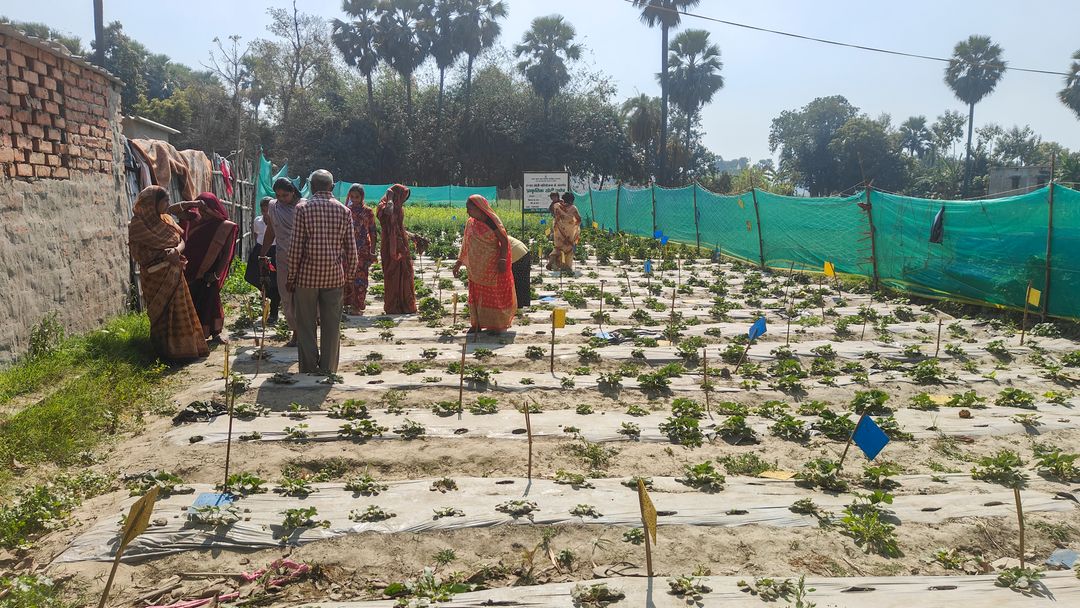Muzaffarpur, Bihar – March 2, 2025:
For Indu Devi, a 35-year-old widow from Suryahi village, life was a daily battle after losing her husband to violence over a land dispute. Left with mounting debts and a small patch of farmland, Indu grappled with despair, uncertain about her future. Yet today, she symbolizes hope, thanks to her brave decision to adopt solar-powered irrigation pumps—transforming not just her farmland, but her life.
"I was worried—how could I, a woman with no technical knowledge, operate a solar pump? But now, it’s just a simple switch," says Indu Devi, who now earns a stable income by supplying water to neighboring farms.
Indu's inspiring turnaround story is not isolated. Across Muzaffarpur district, many women involved in Self-Help Groups (SHGs) have adopted solar irrigation pumps, overcoming severe economic hardships and patriarchal barriers.
Revolutionizing Agriculture in Bihar
For decades, farmers in Bihar have battled unpredictable rainfall, sweltering summers intensified by climate change, and irregular electricity supply. Diesel pumps, once common, proved expensive and unsustainable, leaving smallholder farmers—particularly women—struggling.Solar-powered pumps emerged as a game-changing solution. Mukesh Chandra, team leader at Aga Khan Rural Support Programme, explains, "Solar pumps operated by women provide water at significantly reduced costs, enabling even the smallest lands to thrive."
Economic Empowerment Amid Social Resistance
Yet, for women like Devki Devi, a mother of three from Kakrachak village, the journey toward independence was not easy. Initially, her alcoholic husband opposed her attending SHG meetings. However, the promise of increased household income changed his mind.In July 2023, with a loan of ₹1.5 lakh at a 10% interest rate, Devki installed a 5 HP solar pump. Today, she provides affordable irrigation water to 12 farms at ₹229 per acre—cheaper than diesel alternatives. Within months, her earnings have allowed her family to cover expenses comfortably, and even save.
Despite financial success, women continue facing resistance at home. Sangita, another SHG member, shared her struggles candidly: "Patriarchy still beats us," as she recounts handing over her earnings unwillingly to her husband.
Initial Investments and Maintenance Challenges
Financial hurdles persist, especially the initial cost of setting up solar irrigation systems. Sangita Devi, a 75-year-old woman from Karanpur village, secured a ₹2.5 lakh loan from her local SHG to install her solar pump. With her children settled elsewhere and no other income sources, this was her lifeline. She now supplies water locally, steadily repaying the loan and saving to replace her thatched hut with a pucca home.Regular maintenance of solar panels presents another challenge. Although the pumps are straightforward to operate, women must learn panel maintenance techniques to ensure optimal efficiency. According to Mukesh Chandra, many have risen to this challenge, learning and teaching others within their communities.
Broader Impact: Sustainable Futures and Economic Growth
The benefits of solar pumps extend beyond irrigation. Farmers report significant cost reductions—up to 50% less than diesel-powered pumps—which enables them to reinvest in quality seeds, fertilizers, and farming inputs. The outcome has been improved agricultural yields, enhanced food security, and higher incomes.Moreover, the savings from solar energy enable families to finance children’s education, repay debts, or even arrange family weddings. Some women have diversified into entrepreneurial ventures, establishing solar-powered flour mills (atta chakkis) and rice mills, contributing significantly to local economies.
A Ray of Hope for Bihar’s Women Farmers
In rural Bihar, solar energy is not only irrigating fields—it is transforming lives. Women like Indu, Devki, and Sangita are redefining gender roles, overcoming social barriers, and leading the charge toward sustainable farming practices.Where the sun once scorched barren fields, today it powers prosperity and empowerment—bringing renewed hope for women farmers determined to build brighter futures.
Last updated by a enewsx:
